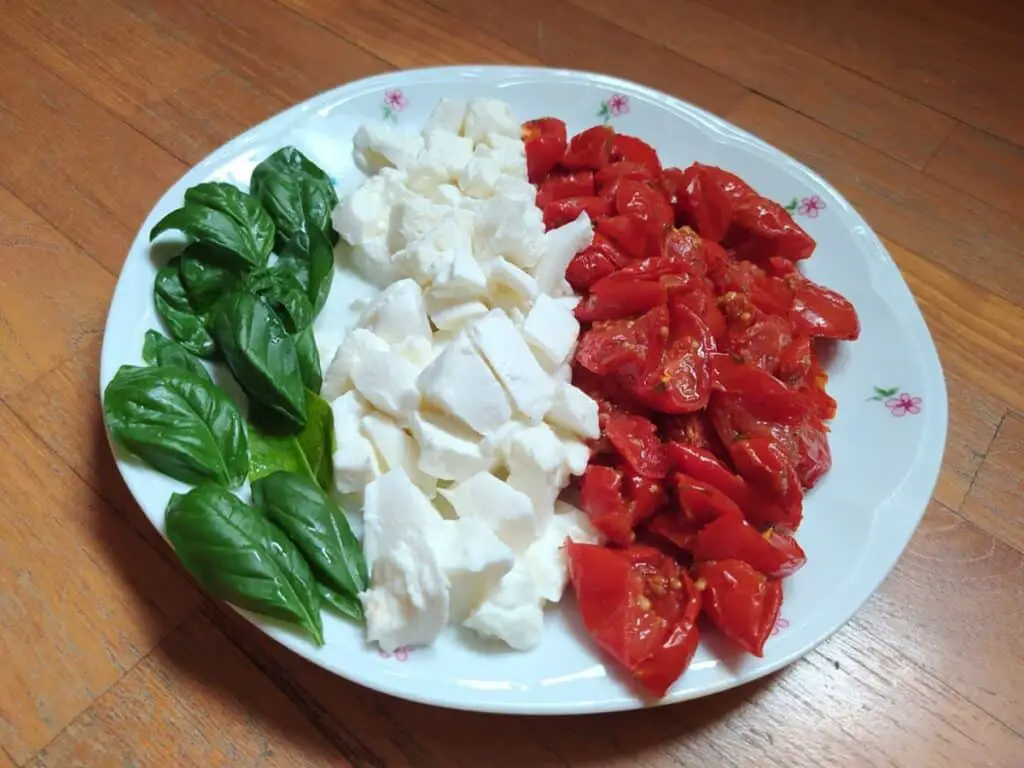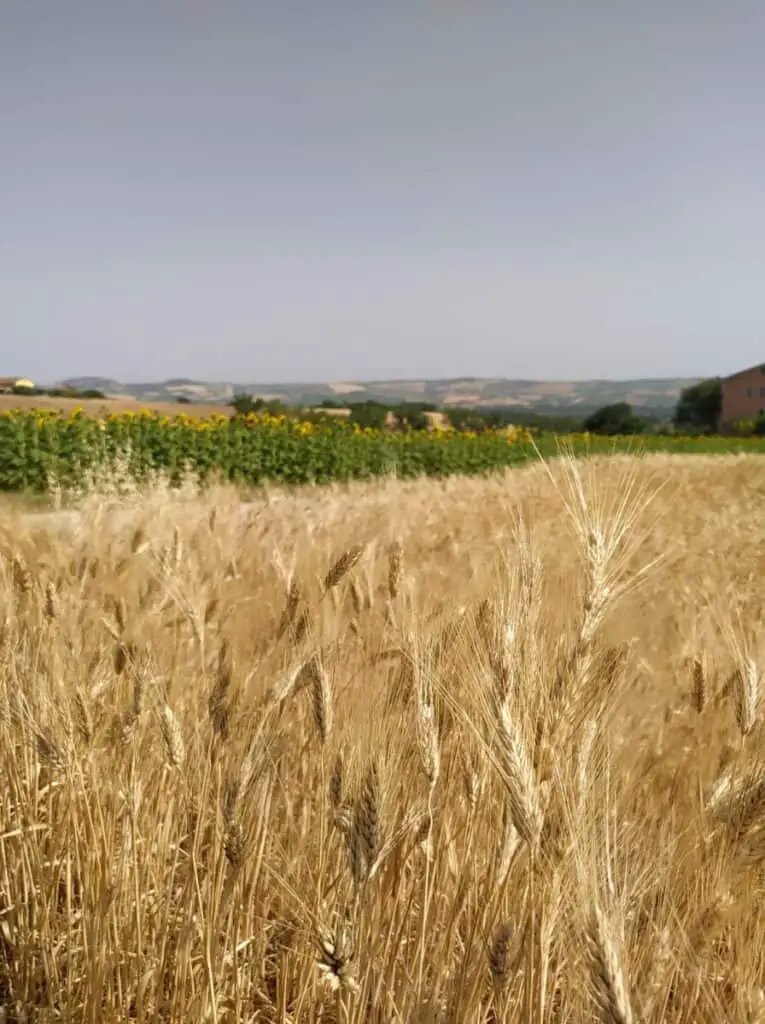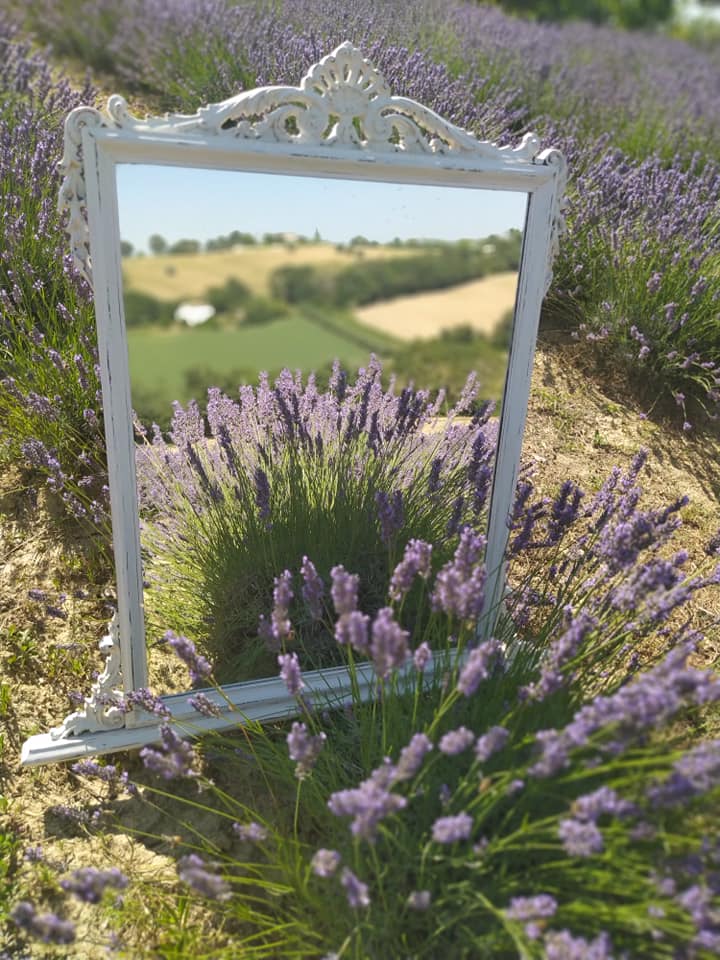Maybe you are renting or buying property in Italy, or are visiting friends or family and would like to have more words to describe their house. If so, this article is for you!
The best way to describe a house in Italian is to use the formula: Questa casa è… (this house is…) followed by the adjective that describes it. To enrich your description, you can use adjective modifiers such as molto (very), abbastanza (quite), veramente (really), or proprio (also “really”).
Just to note, all the adjectives in this article will be in the feminine gender, because they are referred to the noun casa (house).
How to describe the general aspect of a house in Italian
These are useful adjectives to describe the general aspect of a house in Italian:
- Antica (old/ ancient). That the word “antica” does not have a negative connotation. It is, in fact, used to describe a historically valuable building.
- Moderna (modern)
- Bella (beautiful)
- Brutta (ugly)
- Isolata (isolated)
- Popolare (public/ subsisized/ council housing)
- Signorile (mansion/ stately) The expression casa signorile refers to a house where people from the nobility (Signoria) used to live.
- Carina (pretty)
- Stupenda (wonderful/ gorgeous)
Here is an example of how to describe a house in Italian using these adjectives:
La mia prima casa era una casa antica, un vecchio palazzo signorile al centro del paese. Era molto bella e dal terrazzo si vedeva un panorama stupendo. La mia seconda casa era una grande casa in campagna, più moderna. Era un po’ isolata ma aveva molto spazio intorno ed era possibile fare delle belle passeggiate.
My first house was an ancient house, an old stately Palazzo in the centre of the town. It was very beautiful and from the terrace you could see a wonderful view. My second house was a large house in the countryside, more modern. It was a little isolated, but had a lot of space around it and it was possible to go for nice walks.
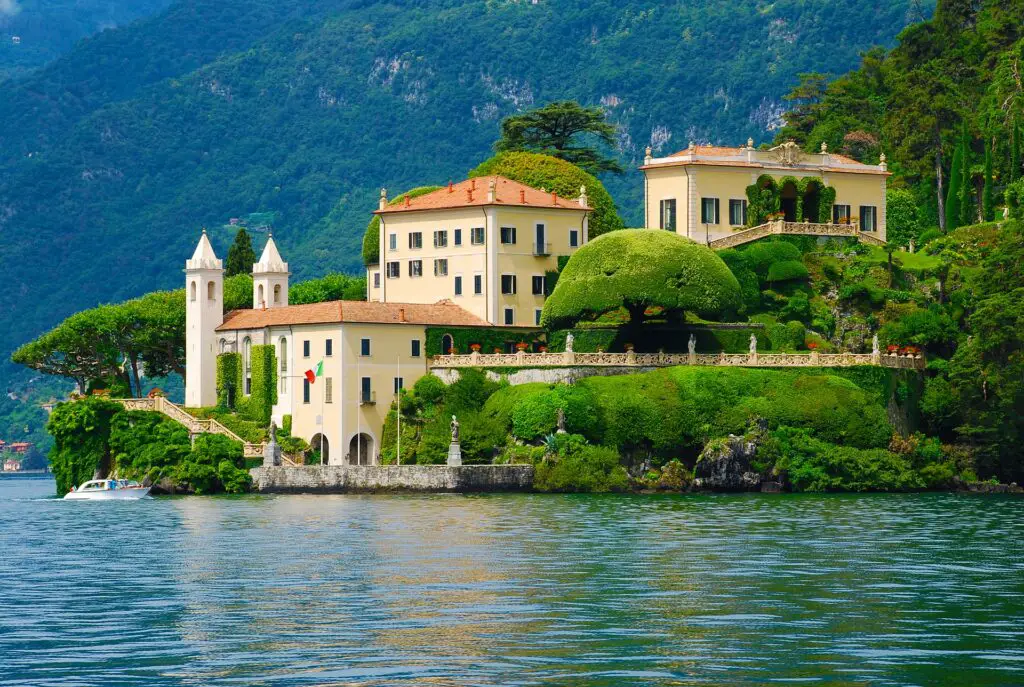
Italian adjectives for the house market
If you are planning on renting or purchasing a house in Italy, there is a number of adjectives which can be useful to describe the price of a house, its occupancy status and its characteristics in terms of renting or buying:
- Abitata (occupied)
- Disabitata (unoccupied)
- Affittata (rented)
- Sfitta (not currently rented / vacant)
- Libera (available / vacant)
- Occupata (occupied / unavailable)
- Ammobiliata (furnished)
- Non ammobiliata (unfurnished)
- Abbandonata (abandoned)
- Vuota (vacant)
- Costosa (expensive)
- Economica (affordable)
Here is an example of how to describe a house in Italian using these adjectives:
La casa è occupata fino alla fine di questo mese, ma dopo è libera. È stata affittata in modo continuativo da cinque anni. È anche abbastanza economica, considerato il quartiere. Si affitta parzialmente ammobiliata.
The house is occupied until the end of this month, but after that it’s free. It has been rented continuously for five years. It’s also quite affordable, considering the neighbourhood. It is let partially furnished.
Italian adjectives to describe the state of repair and age of a house
The Italian language offers several adjectives that you can use to describe how old a house is and its state of repair:
- Nuova (new)
- Vecchia (old)
- Antica (ancient)
- Riparata (repaired / well-maintained)
- Restaurata (renovated)
- Rimodernata (remodelled / modernized)
- Trascurata (neglected)
Here is an example description to show how you can use these adjectives:
La casa è del 1960, quindi ha una struttura un po’ vecchia, ma è stata parzialmente restaurata e rimodernata all’ interno. Infatti due stanze sono completamente nuove. Prima di cominciare i lavori la casa era un po’ trascurata ma, nel tempo, molte cose sono state riparate.
The house is from 1960, so its structure is a little old, but the interior was partially renovated and modernised. In fact, two of the rooms are completely new. Before starting the work, the house was a little neglected, but, over time, many things have been repaired.
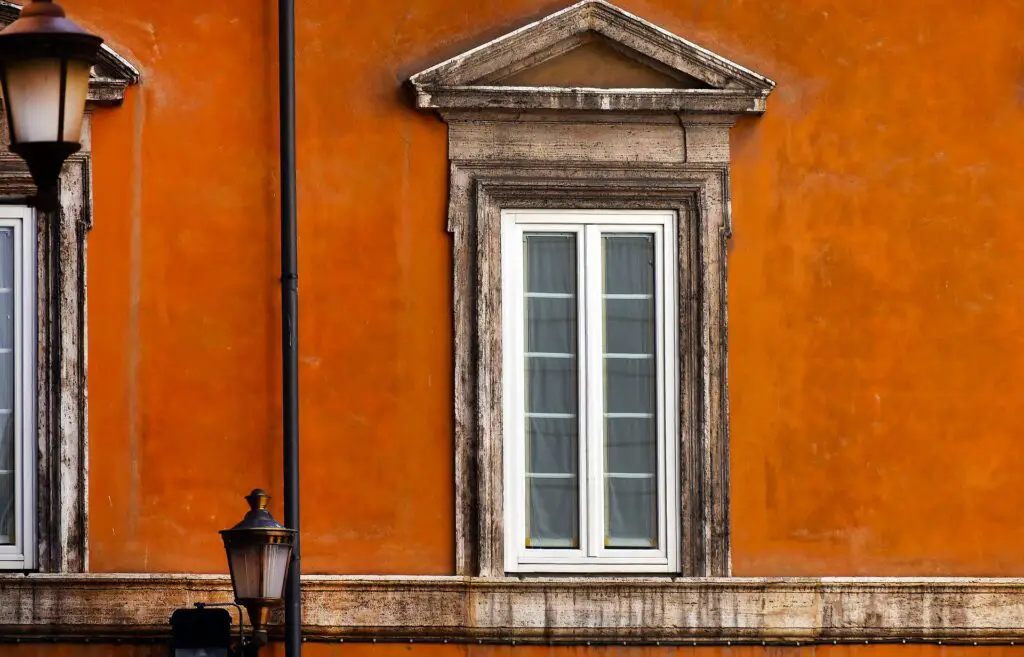
Italian adjectives to describe the temperature and climate of a house
These are Italian adjectives that you can use to refer to the internal conditions of a house in terms of temperature, humidity and ventilation:
- Calda (warm)
- Fredda (cold)
- Arieggiata (ventilated)
- Fresca (cool)
- Asciutta (dry)
- Umida (humid)
- Luminosa (light)
- Soleggiata (sunny)
Here is an example of how you can talk about the internal conditions of a house in Italian:
La sua casa non è molto luminosa perche si trova in una strada stretta con altre case davanti. C’è una stanza in particolare che è un po’ umida perchè non è molto soleggiata, però rimane calda in inverno e fresca in estate. Se si aprono le finestre sul davanti e sul di dietro, la casa diventa molto arieggiata.
His/ her house is not very light because it’s situated in a narrow road with other houses facing it. There is a room in particular which is a little humid because it’s not very sunny, but it stays warm in winter and cool in summer. If you open the windows at the front and at the rear, the house gets very ventilated.
How to describe the feel of a house in Italian
These Italian adjectives are about the vibe that a house gives off, and how being in the house makes you feel:
- Accogliente (welcoming)
- Confortevole (comfortable)
- Deprimente (depressing)
- Modesta (modest)
- Cupa (dingy / dark)
- Lussuosa (luxurious)
- Allegra (cheerful)
Here is an example of how you would use these Italian adjectives about how a house feels:
La loro casa è lussuosa ma non è accogliente. È infatti un po’ cupa. Preferisco una casa più modesta ma allegra e confortevole.
Their house is luxurious but it’s not welcoming. In fact, it’s a little dingy. I prefer a house that’s more modest but cheerful and comfortable.
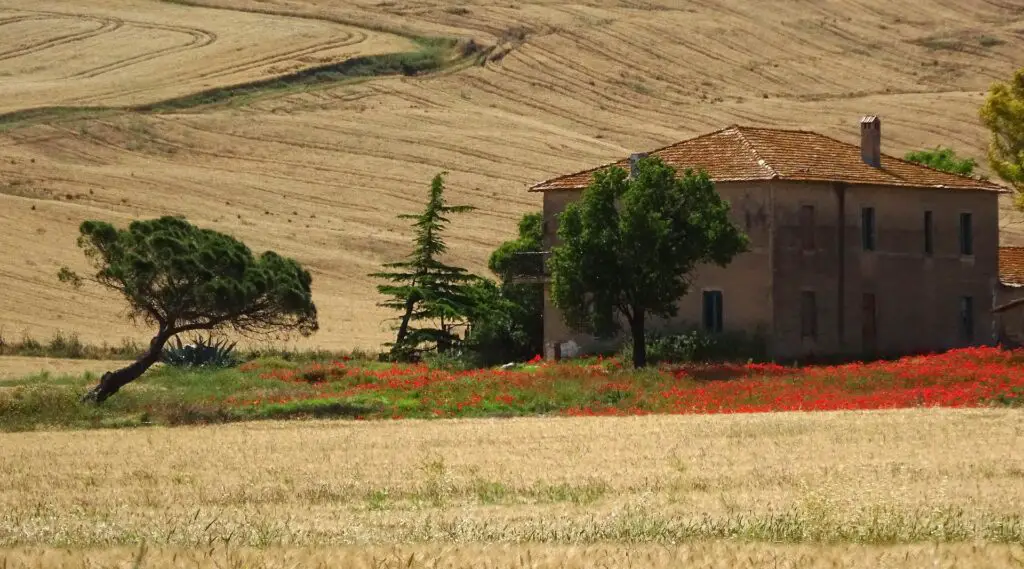
Adjectives to describe the structure of a house in Italian
Below are adjectives that you can use to describe different aspects of a house structure in Italian:
- Sicura (safe)
- Solida (solid)
- Pericolante (structurally unsafe)
- Diroccata (dilapidated)
- Ampliata (extended)
- Ricostruita (rebuilt)
- Distrutta (demolished / destroyed)
- Piccola (small)
- Grande (large)
- Enorme (huge)
- Anti-sismica (antiseismic / earthquake-proof)
Here is how you can use these adjectives in an example:
Durante il terremoto alcune delle case più vecchie sono state quasi completamente distrutte. Alcuni dicono che queste case non erano solide neanche prima del terremoto. Adesso queste case sono pericolanti e ai proprietari è vietato andarci. Adesso alcune case nel villaggio sono già state ricostruite in modo più sicuro e sono anti-sismiche.
During the earthquake come of the older houses have been almost completely destroyed. Some say that these houses were not solid before the earthquake either. Now these houses are structurally unsafe and the owners are not allowed to go there. Now some of the houses in the village have already been rebuilt in a safer way and they are earthquake-proof.
Adjectives to describe the inside of a house in Italian
Italians invest a lot of time and effort in caring for their homes, as they are very sociable people, and the home is where a lot of the family and social life takes place.
Here are adjectives you can use when describing how the inside of a house looks and feels in Italian:
- Ordinata (tidy)
- Disordinata (untidy)
- Pulita (clean)
- Igienica (hygenic)
- Anti-igienica (unhygienic)
- Sporca (dirty)
- Angusta (cramped)
- Spaziosa (spacious)
- Tranquilla (quiet / peaceful)
- Rumorosa (noisy)
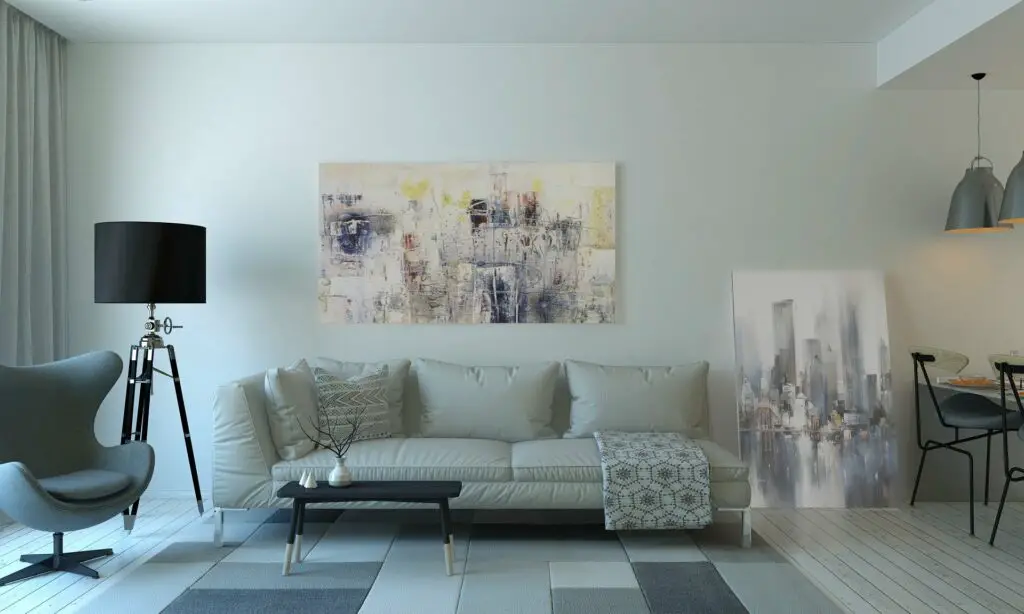
Below is an example of how you can describe the inside of a house in Italian:
La casa dei miei amici era sempre molto pulita. Era una casa spaziosa e quindi era facile tenerla ordinata. Loro non avevano bambini e quindi la casa non era rumorosa, infatti era addirittura troppo tranquilla a volte.
Mi friends’ house was always very clean. It was a spacious house and so it was easy to keep it tidy. They didn’t have children and so the house wasn’t noisy, in fact it was even too quiet at times.
Italian adjectives to describe a house: the take-home message
Describing a house in Italian does not present any large grammatical difficulties, and so it mostly comes down to learning the vocabulary.
Italians love houses, as they are the place where family life unfolds. For this reason, the Italian language offers a rich vocabulary to describe houses, from the their general aspect, to their state of maintenance, to how they make you feel.



